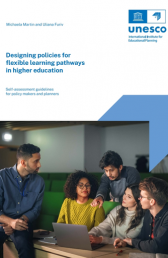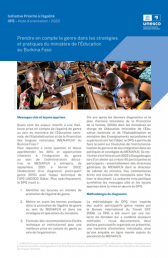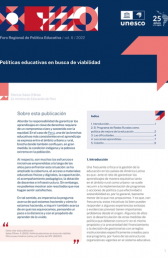
Languages
English, French
Co-publisher
Association for the Development of Education in Africa
Food and Agriculture Organization of the United Nations
Italy. Direzione generale per la cooperazione allo sviluppo
Series
Education for rural people
Year
2006
Pages
74 p.
ISBN
92-803-1295-2(UNESCO-IIEP, eng), 978-92-803-1295-9 (UNESCO-IIEP, eng), 92-5-105213-1 (FAO, eng); 92-9178-082-0(ADEA, fre), 978-92-9178-082-0(ADEA, fre)
Country
About the publication
The majority of the world's population is rural. Sub-Saharan Africa has a particularly large proportion of its population living in rural areas. Many of these people are poor, illiterate and under-nourished. Chronic hunger erodes cognitive abilities, while lack of education reduces the capacity to produce and contributes to poverty. Girls in rural areas are particularly disadvantaged. The Millennium Declaration Goals of poverty reduction, food security, universal primary education and gender equity, set for 2015, will require special efforts in rural areas, notably in Africa. Growth in the agricultural sector and improvements in education have a crucial role to play in creating opportunities and equipping rural people with the knowledge and skills to strengthen their livelihoods, incomes and productivity, given their cultural, economic and natural environments. Against this background of widespread rural poverty, illiteracy and food insecurity, the FAO and UNESCO launched in 2002 a flagship programme entitled .Education for rural people.. This has led to a number of initiatives, including the regional seminar on Education for Rural People in Africa, jointly organized by the FAO, the Association for the Development of Education in Africa (ADEA) and IIEP/UNESCO in September 2005, in Addis Ababa. This publication draws upon the results of the seminar to analyze the needs of rural people within their diverse educational contexts. It discusses promising ways of using planning and monitoring to respond to EFA and rural development challenges.









